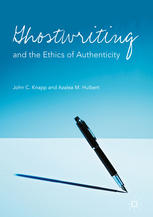

Most ebook files are in PDF format, so you can easily read them using various software such as Foxit Reader or directly on the Google Chrome browser.
Some ebook files are released by publishers in other formats such as .awz, .mobi, .epub, .fb2, etc. You may need to install specific software to read these formats on mobile/PC, such as Calibre.
Please read the tutorial at this link: https://ebookbell.com/faq
We offer FREE conversion to the popular formats you request; however, this may take some time. Therefore, right after payment, please email us, and we will try to provide the service as quickly as possible.
For some exceptional file formats or broken links (if any), please refrain from opening any disputes. Instead, email us first, and we will try to assist within a maximum of 6 hours.
EbookBell Team

5.0
88 reviewsThis book presents an ethical framework which evaluates the legitimacy of the practice of ghostwriting. It explores the connection between personal authenticity and the use of ghostwriters in corporate, political, legal, higher education, and scientific contexts. It then examines the history of ghostwriting as a professional practice and introduces a model for ethical analysis.
In this book, the authors shrewdly address crucial ethical questions such as: When is it acceptable for a leader to claim the words of a ghostwriter as their own? When may this be inappropriate or even dangerously misleading? What are the consequences when public awareness of this practice leads to cynicism about the authenticity of leaders and their communications? And when, if ever, is the use of a ghostwriter ethical? This book will be welcomed by scholars and practitioners alike as an original and timely contribution to the literature of business, politics, and communications.div>